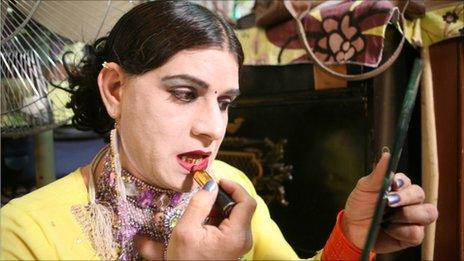Pakistan's transgender community cautiously welcomes marriage fatwa
- Published
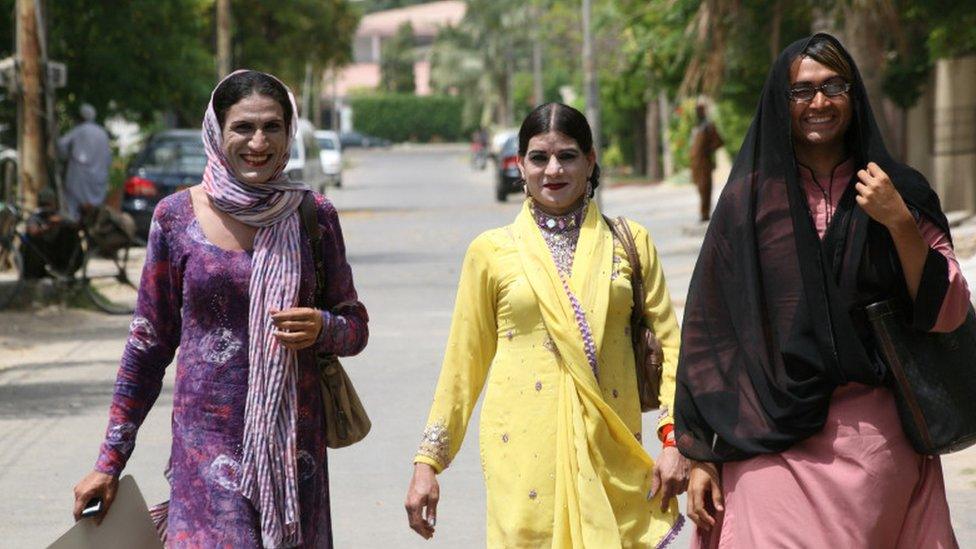
The transgender community faces discrimination in Pakistan and finding employment is a challenge
A religious decree declaring transgender marriage to be legal has been cautiously welcomed in Pakistan, but activists say attitudes still need to change.
The decree, or fatwa, was passed on Sunday by a group of clerics.
It said that according to Islam transgender people with "visible signs" of being male or female may marry someone of the opposite sex.
But those with "visible signs of both genders" may not marry, it said.
The 50 clerics, part of the little-known Tanzeem Ittehad-i-Ummat body based in Lahore, also said any act intended to "humiliate, insult or tease" transgender individuals should be considered a crime under Islam.
The fatwa is not legally binding in any way.
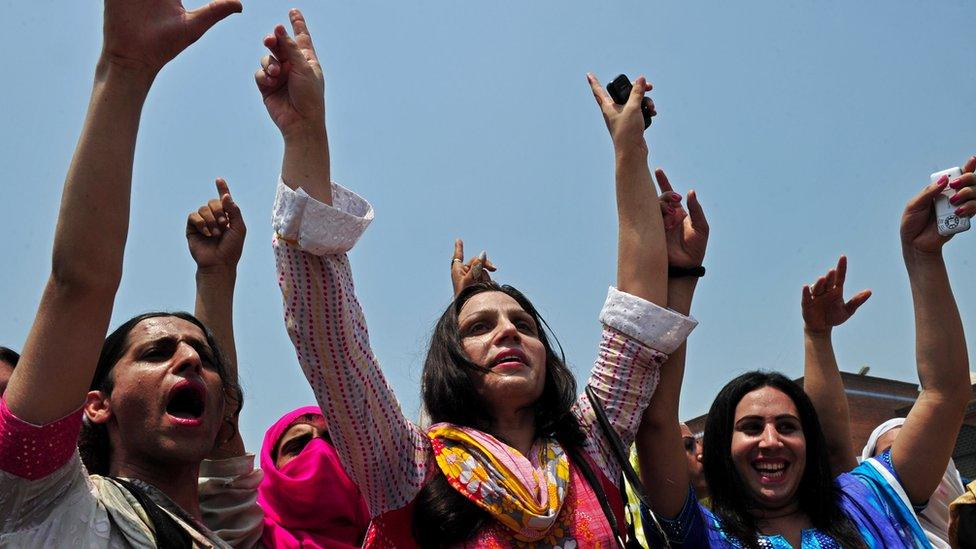
A social worker said the fatwa was a good step, but that issues would still remain until transgender marriage was officially legitimised
"We are glad that somebody's talked about us too," transgender rights worker Almas Bobby told BBC Urdu. "By Sharia we already had the right [to marry], but unless measures are taken to remove the misconceptions about us in society, the condition of our community will not be changed."
Another social worker for gender issues told BBC Urdu that it was a "good step", but that issues would remain until transgender marriage was officially legitimised.
Qamar Nasim said that many police officers had charged people in transgender marriages because "due to a lack of knowledge... they consider it same-sex marriage".
"This practice can only be stopped when [the] government spread awareness about rights of a transgender person."
The case of Alisha
Transgender people are discriminated against in Pakistan and struggle to find employment.
Many transgender people in Pakistan survive by dancing at carnivals and weddings
More than 45 transgender people have been killed in the Khyber Pakhtunkhwa province in the past two years, according to local rights group Trans Action.
Last month, a 23-year-old transgender activist died after delays in treatment. Alisha, who was shot eight times, was in critical condition when admitted to hospital but staff could not decide whether to put her in a male or female ward, according to her friends.
Trans Action, an advocacy group, say that there are at least 45,000 transgender people in the province and at least half-a-million nationwide.
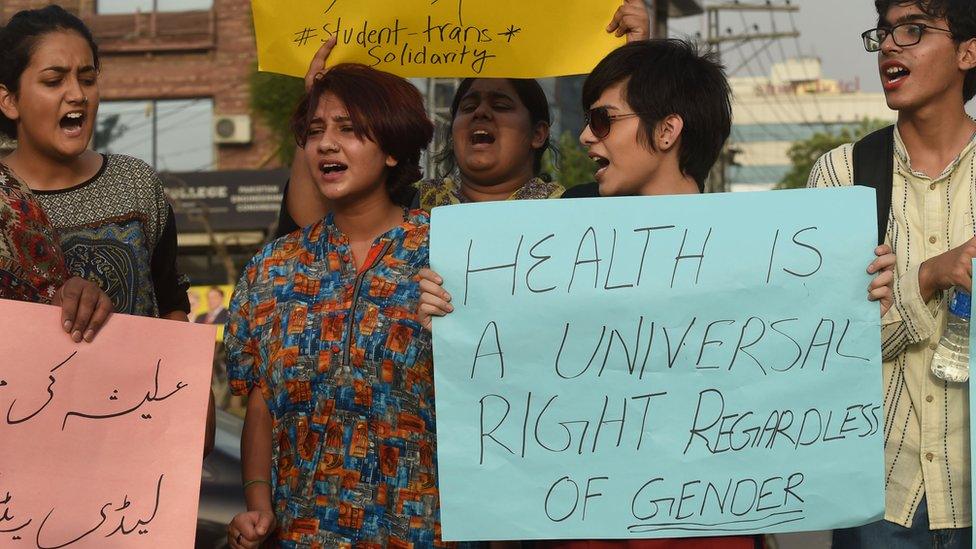
A transgender activist, Alisha, died last month after delays in treatment at a local hospital
In 2012, Pakistan's Supreme Court declared equal rights for transgender citizens, including the right to inherit property and assets. They were also given the right to vote the year before.
However, it has denied homosexual couples the permission to marry, with cases in the past of male homosexuals being charged under anti-sodomy laws.
- Published23 June 2016
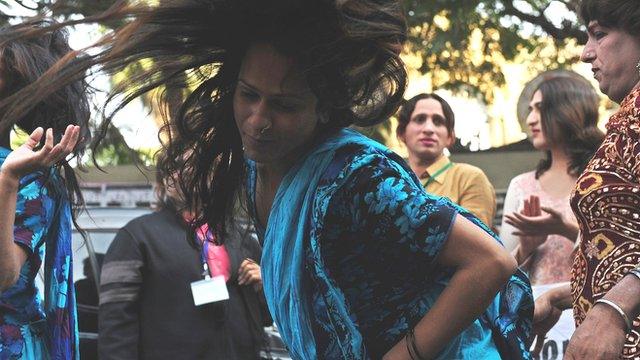
- Published25 April 2011
